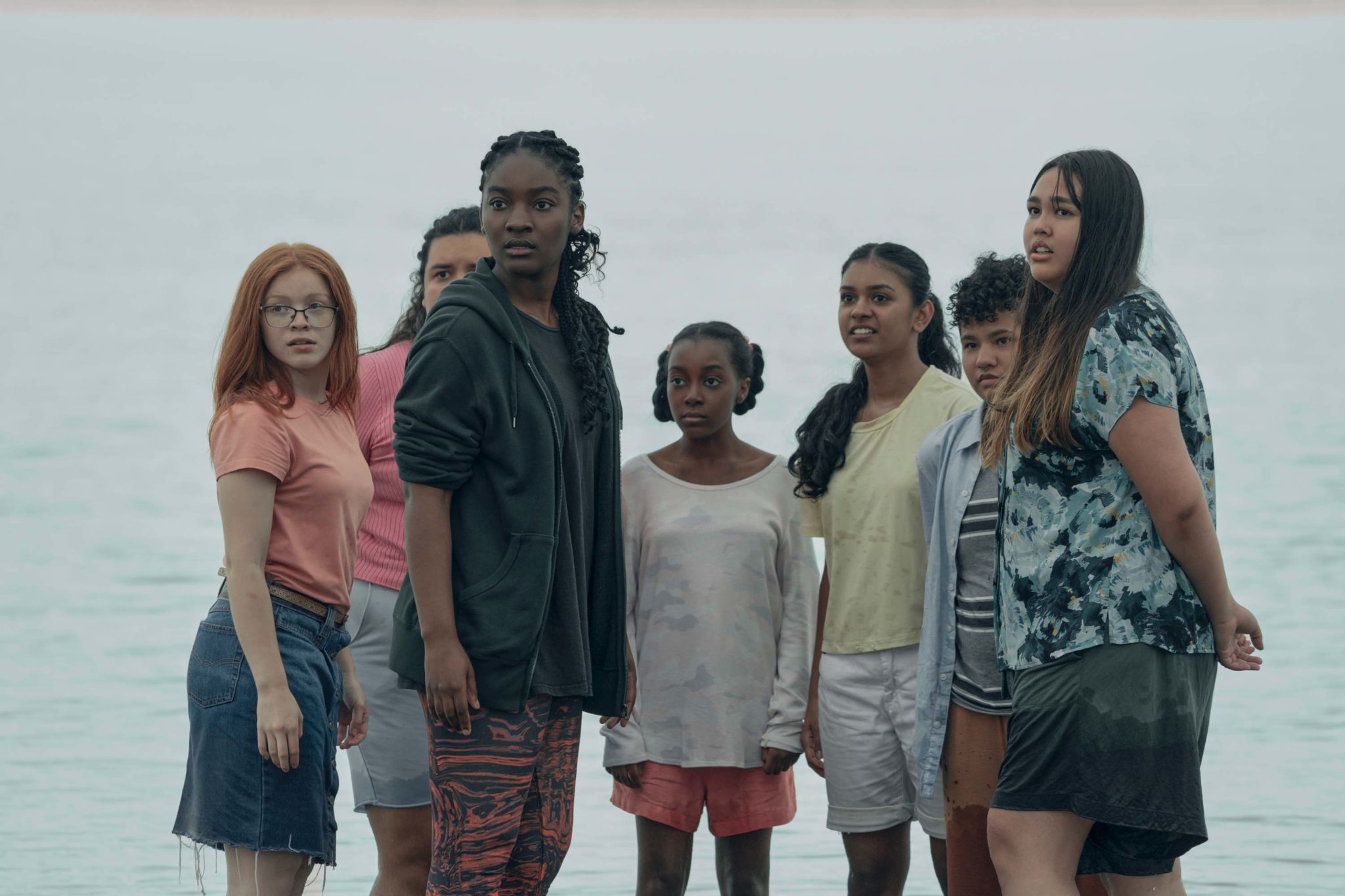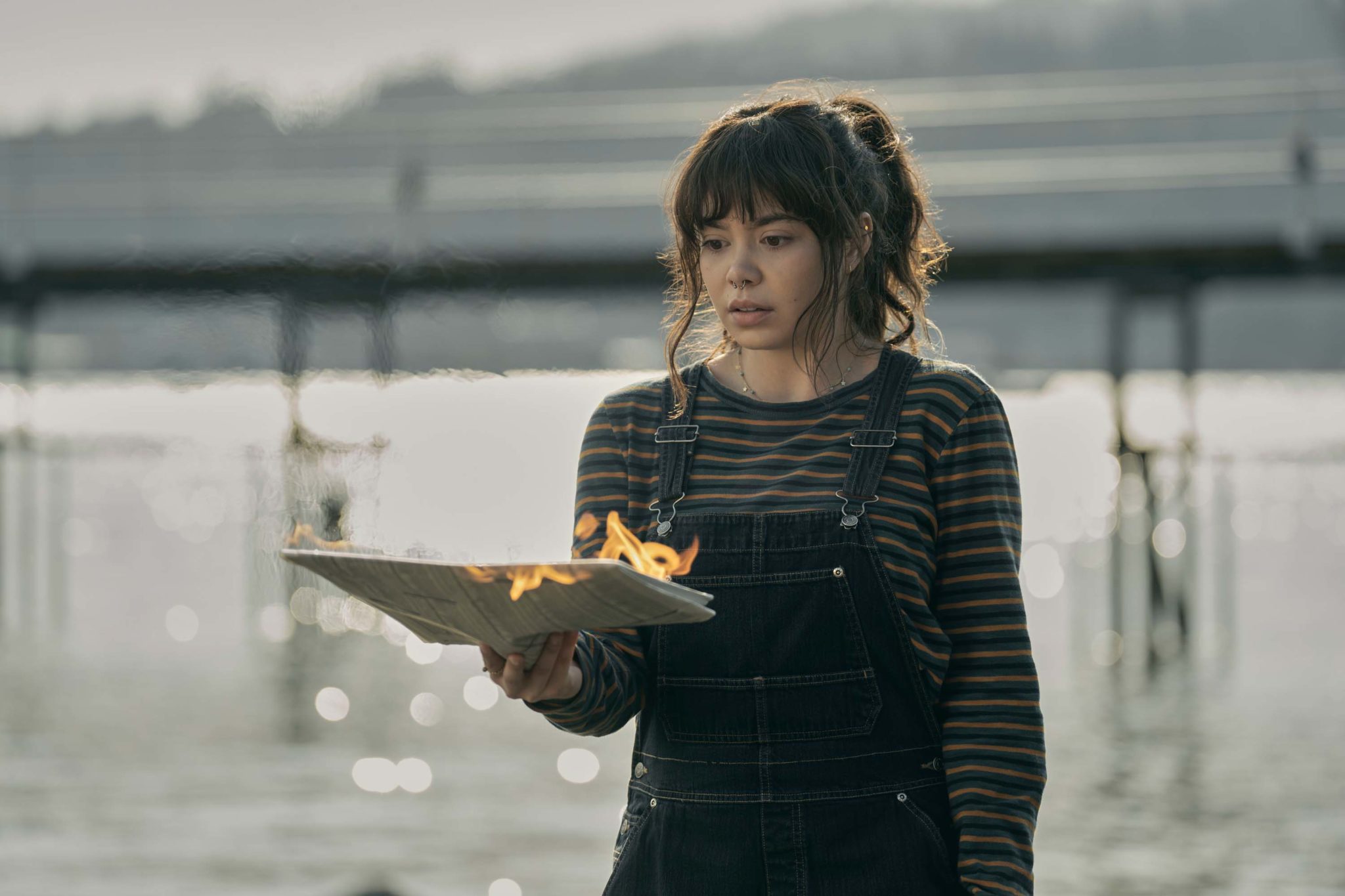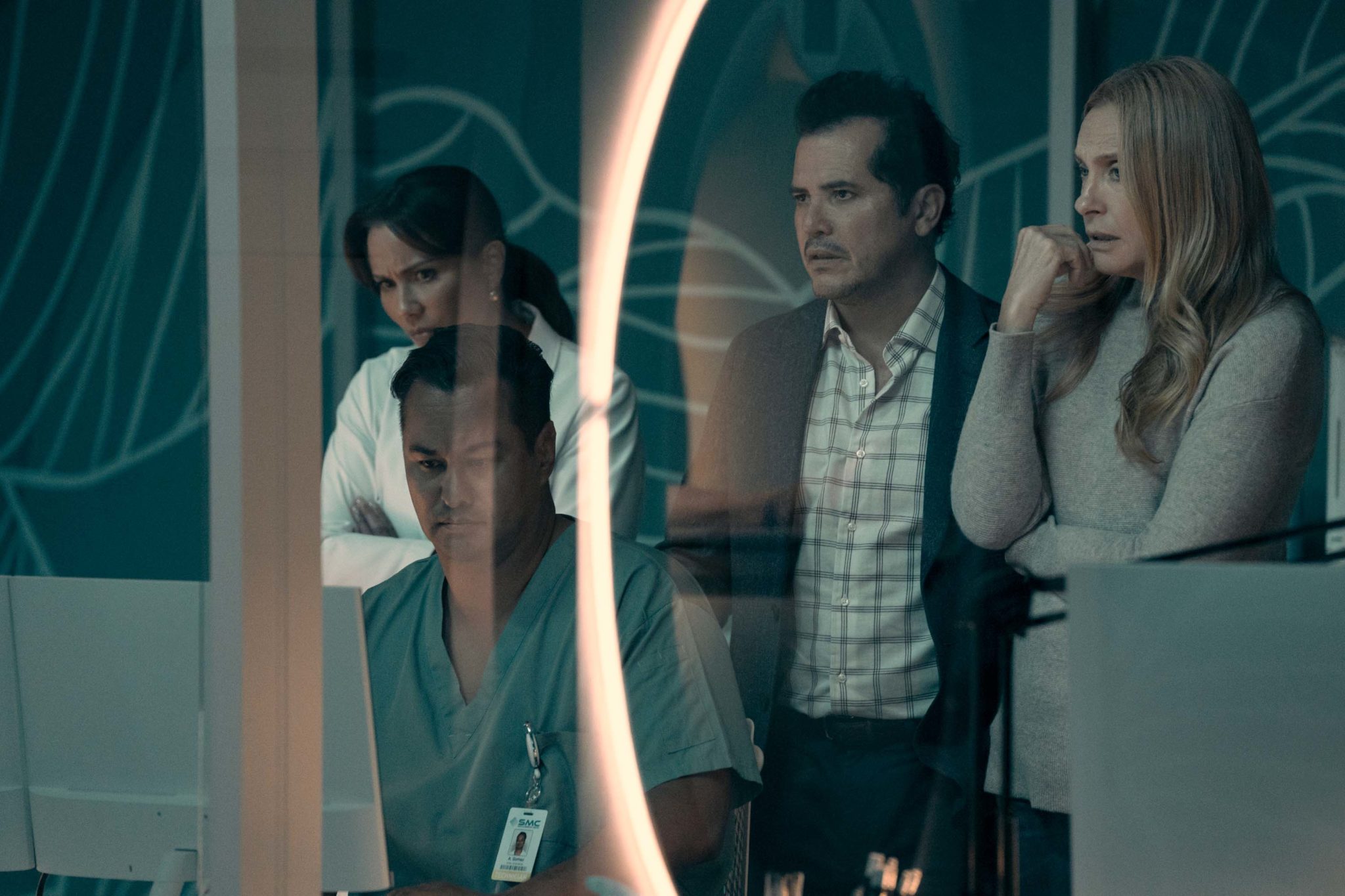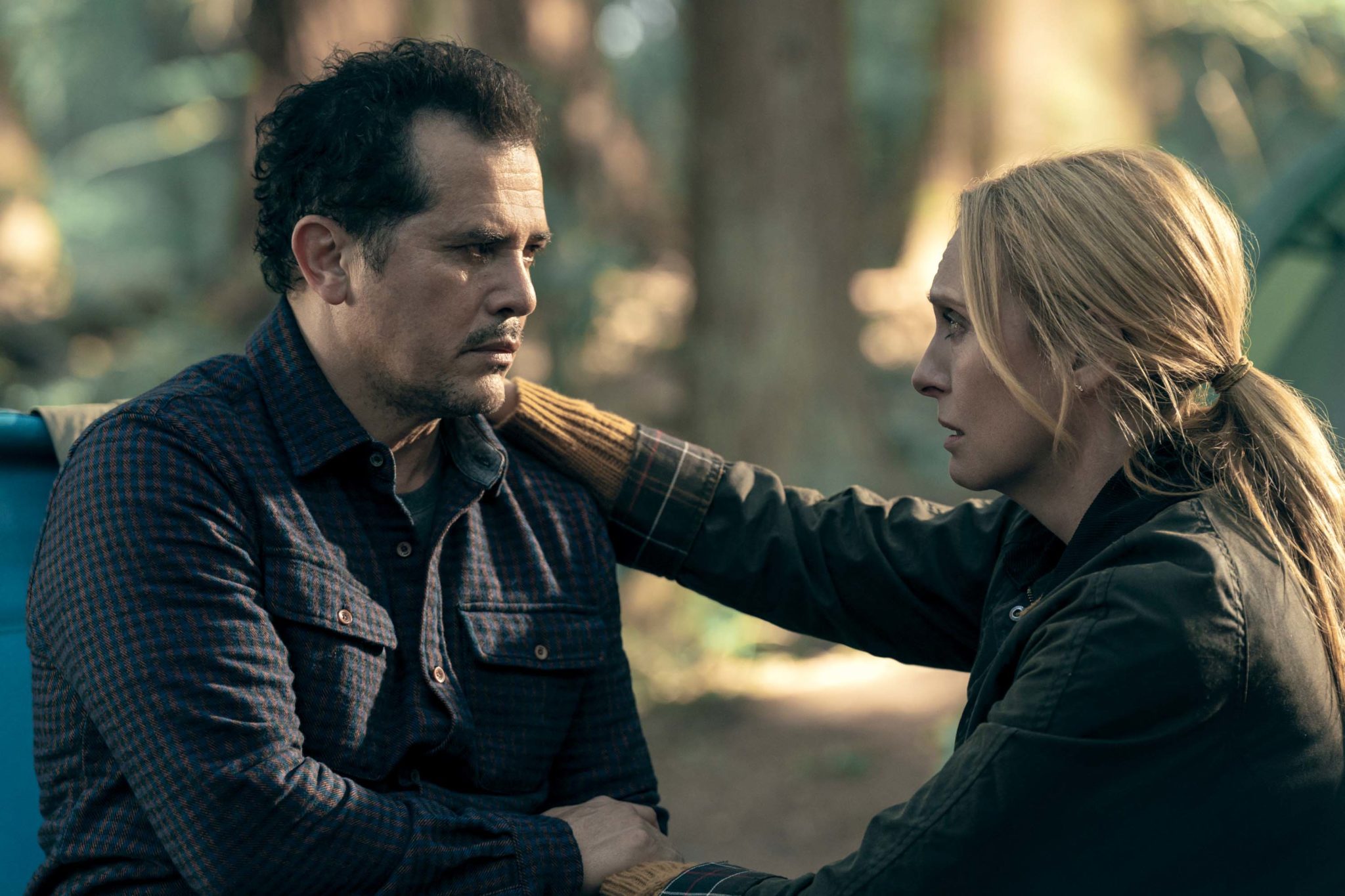- Film And TV
- 02 May 23

Hot Press meets the stars of Prime Video’s suitably electrifying new sci-fi series, The Power, in which the world’s teenage girls develop the ability to electrocute people at will.
As one of the most eagerly anticipated shows on 2023’s jam-packed television schedule, The Power has pressure on its shoulders. Not least due to the loyal fanbase who devoured the award-winning 2016 novel penned by Naomi Alderman, who became one of the showrunners of Prime Video’s big budget series.
The world of The Power mirrors our own, except for one twist of nature. Without warning, all teenage girls in the world develop the hereditary ability to electrocute people at will. When they pass it to female elders, everything is forever changed.
Having first announced the Amazon adaptation four years ago, the Covid-19 pandemic put a spanner in the works. The creators of The Power pulled out of filming in the Southern state of Georgia in protest of the heartbeat bills and Roe v Wade overturning. Bodily autonomy is a primary focus of the uncannily-timed nailbiter show, which premiered on March 31st.
"I just found it so exciting to be part of a story where there were so many different types of women,” Toni Collette tells me over Zoom, hyped to finally discuss the anticipated show. “We were shown a trailer during the shoot, and I couldn’t believe it. It’s important for girls and women of all ages to see themselves and others on screen exploring autonomy, agency, sovereignty and basic safety. It’s inspiring.”
Advertisement
 Halle Bush (Allie).
Halle Bush (Allie).Naomi Alderman leads an all-female writers’ room that includes Claire Wilson, Sarah Quintrell, Raelle Tucker, Stacy Osei-Kuffour, Sue Chung and Brennan Peters.
“There wasn’t a feeling of needing an all-female-identifying writers room,” author Naomi Alderman tells me. “We were genuinely just looking for people who could write these characters thoroughly and understand the storyline well.”
“Having that type of writer’s room allowed us to talk about certain things that haven’t been acceptable in mixed company,” co-executive producer Raelle Tucker explains. “It created a safe space to be able to share ideas we might have been more self-conscious of. There was a sisterhood, a camaraderie and emotional depth.”
One thing history has taught us in recent years about representation is that leaders from marginalised groups don’t necessarily act in the best interests of constituents.
“I grew up in the UK in the 1980s when Margaret Thatcher was Prime Minister,” Naomi recounts, nodding. “If you thought that a woman being in charge would lead to much more compassion, you’d have another idea after a decade of her rule. My personal experience is that to assume women are naturally lovely is sexism.”
“In the UK, we have a Prime Minister and a Home Secretary who are people of colour, and you’d think that would make us more friendly towards immigration, but they’ve got an entirely negative, horrendous idea of policy in regards to migrants.”
Advertisement
“I agree,” British-Nigerian actress and visual artist Heather Agyepong says. “Representation isn’t the assumption that people will inherently be good. Visibility doesn’t equal positive human rights. The show is about how power corrupts everybody, regardless of gender. If one group has it all, there’s an imbalance.”
 Auli'i Cravalho as Jos Clearly
Auli'i Cravalho as Jos ClearlyNevertheless, diversity on The Power set behind the camera was a clear comfort.
“It just made me feel a lot more safe on set,” newcomer Halle Bush (Allie), who plays a vulnerable American foster kid who reinvents herself as a faith leader, notes. “I knew I wouldn’t be shut down immediately for voicing my ideas. For it being my first time on set, I was anxious - but the women behind the camera felt like moms to me!”
“It meant that there was a shorthand between myself and the directors,” Ria Zmitrowicz, who plays tough Londoner Roxy Monke, jumps in. “We all know what it’s like to feel afraid, and experience the casual misogyny within the characters’ lives. We didn’t have to overthink that, and it brought authenticity and detail to the story."
“Women behind the pen and camera know exactly how the characters and actors feel,” Zrinka Cvitesic (Tatiana Moskalev) “We’re speaking the same language.”
Advertisement
“Phoebe Okeowo, a British-Nigerian woman, was one of the writers behind my character’s storyline,” Heather enthuses. “There was a common ground, I didn’t have to prove myself in any way - it’s one of the privileges of being on this show.”
One thread of the series takes place in Lagos, Nigeria, where Heather’s character becomes a pivotal part of the “electric girls” movement and matriarchy.
“It’s giving me chills to make a show that is so urgent,” Agyepong concedes. “It felt like one of the most important projects I’ve ever been a part of. We’ve got social media that’s able to tap into situations going on all over the globe - especially the political situation in Nigeria right now. To see a different version of how things can be for people who identify as women encourages hope. It creates resilience”.
The plotlines also take viewers to Saudi Arabia and Carpathia in Eastern Europe.
 John Leguizamo (Rob Lopez), Toni Collette (Margot Cleary)
John Leguizamo (Rob Lopez), Toni Collette (Margot Cleary)“I had a lot of friends in Nigeria helping me out,” Heather smiles. “One of them was a photojournalist who reported on the #EndSARS movement. Talking to Ibo people and understanding the cultural specificity was also vital. To see a culturally rich Lagos and strong Nigerian women on such a big platform is an honour,” she beams.
Advertisement
Landing Oscar-nominated Australian actress Toni Collette must have been a surreal moment for the novel’s English author Naomi Alderman, and the show’s young stars.
“I stood up and punched the air!” Naomi grins. “What an incredible actor - just extraordinary. She’s riveting to watch, but you can’t take your eyes off anyone.”
“She’s unabashedly powerful, that’s why she’s perfect casting for this show,” Raelle Tucker expresses. “She lives in her strength, she’s not ashamed of it, she owns it.”
“I’m gutted I didn’t get any scenes with her!” Ria jumps in. “Fingers crossed we get a series two and my story will overlap. I had just watched Little Miss Sunshine and they announced her casting. I’m such a huge fan. She smashes it as Margot.”
Toni’s on-screen husband John Leguizamo is just as keen to heap compliments on the Golden Globe winner: “She’s so generous, present, empathic, vulnerable, powerful and a joy to work with. Her acting skills are on a whole other level. Toni’s one of the best actresses working today. I felt so lucky. Everyone was jealous of me!”
Collette waves away the praise in down to earth fashion, changing the subject.
Advertisement
 John Leguizamo as Rob Lopez
John Leguizamo as Rob Lopez“We’re all born into a patriarchal world, subscribing to certain ideas, rules, systems and structures - and this show just turns it on its head,” Toni says. “It creates this beautiful opportunity for potential change and explores what it might be like. The power that these girls have is a metaphor for a power that I think we all inherently possess, whether we identify it and nurture it or not.”
“It’s a dream to play such a complex woman, one who has so many roles in her own life to balance,” Collette continues. “Inherently, Mayor Margot’s job holds a certain amount of power but she’s a married mum with many plates spinning. The change that’s brought about with this new sense of evolution is far-reaching, not unlike Covid in its scope. Our particular part of the story is this intimate family structure. To play a politician who has good intentions for her constituents was wonderful.”
Rob Lopez (Leguizamo) must straddle the role of loving father and devoted husband with a medical career. His own storyline forces him to make difficult choices on ethical practices and bodily autonomy alongside Margot’s political choices.
“The show isn’t set in the real world, but it greatly reflects it,” Leguizamo adds. “There’s similarities to issues going on in the USA; abortion pills being banned, the overturning of Roe v Wade, the bans on gender-affirming care for trans people, book censorship. Whenever queer people, people of colour, women get power, the white patriarchy gets upset by it and there’s a backlash and a desire to reduce that power.”
“A core lesson is that somebody else’s power doesn’t diminish yours,” Toni agrees.
What would the cast and crew do with the power of self-made electricity?
Advertisement
“I’d like to think I’d use it in self-defence, and it would mean I could go for walks at night alone and not be afraid,” Ria muses, in contrast to her hothead character.
View this post on Instagram
“I feel the same. Margot’s daughter Jos gives a monologue about how women live under this low-level fear all the time,” Raelle says, passionately. “When I leave my house, I instinctively want to make sure not to walk down a dark street or put myself in a dangerous situation. We live under a constant state of alert. It would be amazing to not carry that in my body every day, all the time.”
It would be a reductive mistake to classify the series as a “girl power” drama.
“It’s about historically marginalised people acquiring power. That’s less of an exploration of gender and more an exploration of power itself,” Raelle stresses. “Watching the journey that previously powerless people go on is mesmerising - to see the positive and negative effects. The organ emerges in teenage girls and later can be transferred to older women, but it affects the men in their lives, who have their own strong arcs. Their stories are about how to live in a transformed world for them.”
“I’m a huge believer in the idea that stories can change the world,” Tucker stresses. “My father was queer. In the ‘90s when he died of AIDS, people were afraid to come into his house or walk up to him on the street. Early shows like Ellen and Roseanne started talking about LGBTQ issues and HIV and I saw the world around me shift as a result. If entertainment is emotionally challenging, it can make an impact.”
Advertisement
Playing the role of a politician during a turbulent time must have had its challenges.
“I had the luxury of working with incredible material so I was well informed by writers and producers who have been living with this project before Covid,” Toni smiles. “There were certain women I did look to, Jacinda Ardern being one of them. I went to see Marianne Williamson speak in Vancouver while we were shooting. I was inspired by the difference between politicians with ego versus leaders with purer intentions. Mayor Margot wants to help girls who are going through this unbelievable change that they don’t know how to handle. It’s refreshing to see.”
“The show taps into the potential you can lose by shunning marginalised people from having a seat at the table,” Leguizamo adds. “Men have to get over their discomfort.”
“Awareness is the beginning of change and the world is waking up,” Colette nods. “This transition is uncomfortable for some people - but it’s an exciting time.”
The Power is now streaming on Prime Video.
Read more interviews in the new issue of Hot Press, out now.










